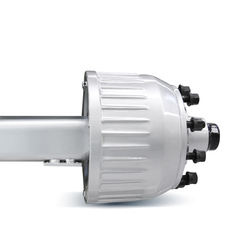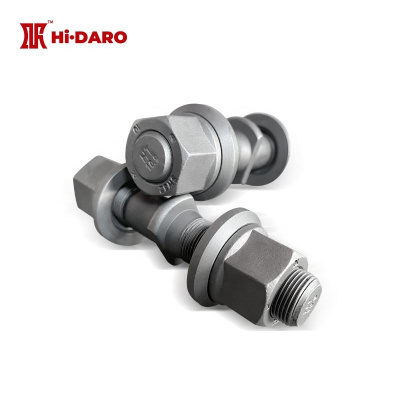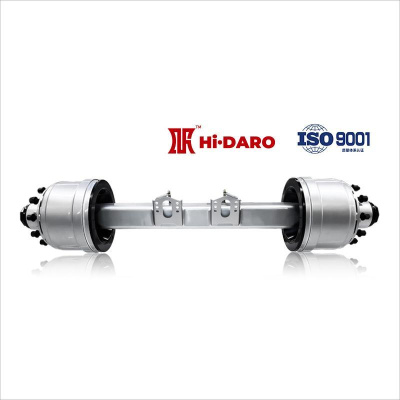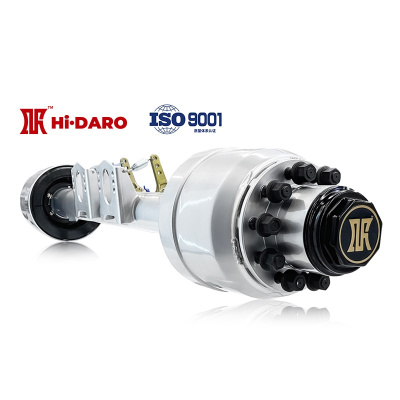Sulit bang makuha ang natural gas heavy truck value?
Ang mga heavy-duty na trak ng natural na gas ay tumutukoy sa isang uri ng sasakyan na gumagamit ng natural na gas bilang panggatong at pinapalitan ang gasolina. Ang kanilang gasolina ay karaniwang nahahati sa dalawang uri: LNG (liquefied natural gas) o CNG (compressed natural gas).
Sa patuloy na pagtaas ng mga presyo ng diesel at pagtaas ng mga gastos sa pagpapatakbo ng mga tradisyunal na fuel heavy-duty na trak, kasama ang paglaganap ng mga bagong uso sa enerhiya sa mga sasakyan, maraming may-ari ng sasakyan ang ibinaling ang kanilang atensyon sa mga natural na gas na heavy-duty na trak kapag bumibili ng mga sasakyan.
Ayon sa nauugnay na data, ang mga benta ng domestic natural trailer axle gas heavy-duty trucks ay tumaas ng 11% buwan-buwan at 166% taon-taon noong Hunyo ngayong taon. Ito rin ang ikalimang magkakasunod na buwan na nakamit ng natural gas heavy-duty truck market sa parehong buwan sa buwan at taon sa taon na paglago. Hindi kalabisan na sabihin na ang mga heavy-duty na trak ng natural gas ay halos naging isang mahalagang puwersa na nagtutulak sa pagbawi ng merkado ng heavy-duty na trak.
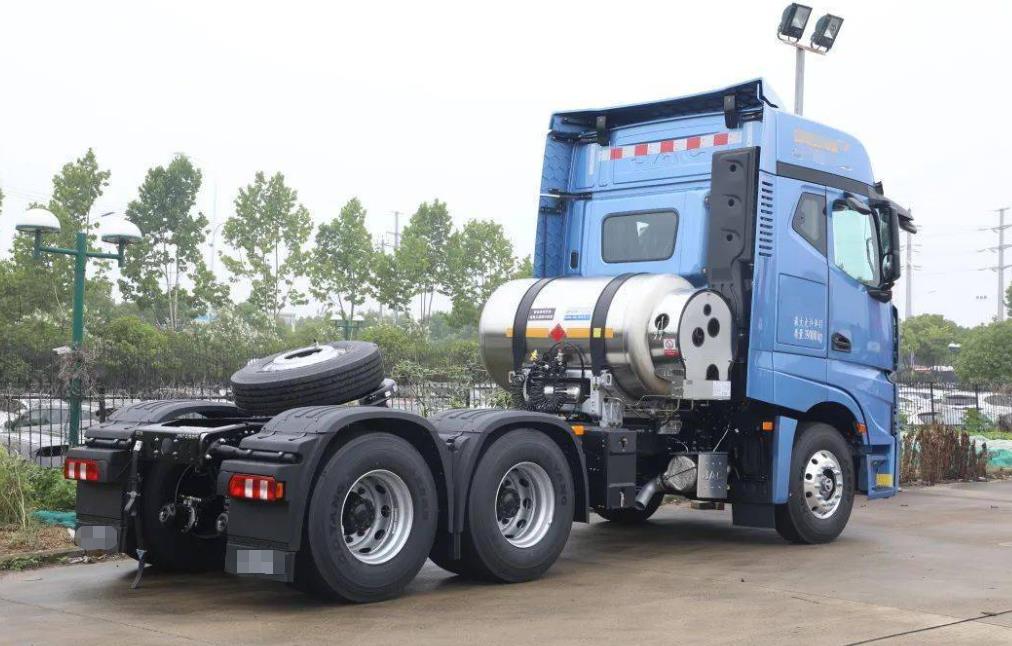
So, is it worth starting with natural gas heavy-duty trucks? This also starts from the advantages and disadvantages of natural gas heavy-duty trucks themselves.
Advantages of natural gas heavy-duty trucks:
1. Fuel prices are cheaper:
In general, natural gas prices are cheaper than diesel, especially in the current context of rising fuel prices. In terms of vehicle fuel alone, natural gas heavy-duty trucks can save a lot compared to traditional fuel vehicles.
2. More environmentally friendly:
As a clean fuel vehicle, natural gas heavy-duty trucks have advantages such as clean environmental protection, good economy, and low operating costs. Under the same conditions, the emission pollution of natural gas heavy-duty trucks is much lower than that of diesel vehicles. The carbon dioxide, carbon monoxide, and hydrocarbons in the exhaust are significantly reduced compared to diesel vehicles, and there are basically no harmful substances such as sulfides and benzene.
3. Protecting the engine:
Natural gas burns more completely and cleanly in the engine, which is less prone to carbon accumulation. It can greatly reduce the wear of parts in the engine cylinders, extend the engine's service life, and reduce vehicle maintenance or repair costs.
4. High ignition point and low temperature resistance:
The ignition point of natural gas is high, above 600 ℃, and it is not flammable. In cold weather conditions, there is no wax formation in diesel, and there is no need for oil heating. Additionally, it has good low-temperature starting performance.
5. Not afraid of 'fuel consumers' stealing oil:
Natural gas is not something that can be stolen if ehe ng trailer you want to. When car owners are tired, they can stop and rest without worrying about fuel theft or sleeping on the fuel tank in cold weather.
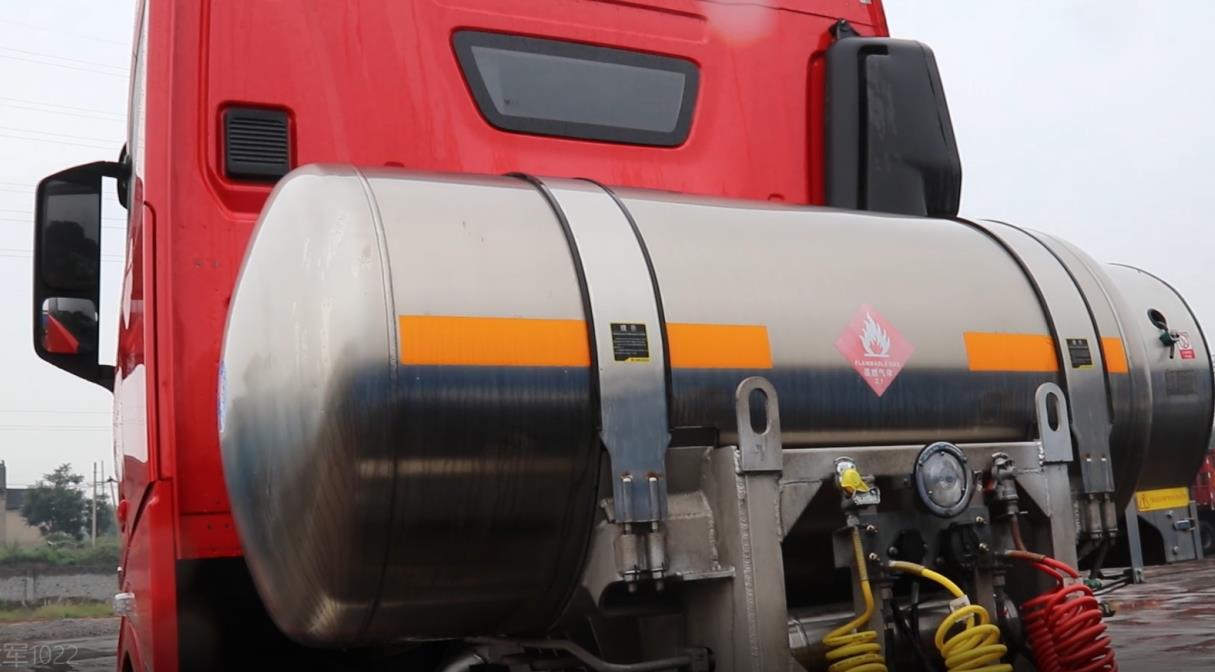
Disadvantages of natural gas heavy-duty trucks:
1. Poor coverage of gas stations:
At present, the coverage rate of gas stations in China is far lower than that of gas stations. Once car owners have traveled a long distance, they must always calculate their fuel mileage and plan their routes.
2. High selling price and long payback period:
At present, the price of natural gas heavy-duty trucks is generally higher than that of gasoline vehicles. Even if modified, such as replacing the engine, installing gas storage tanks, pressure reducing valves, mixers, etc., the price is probably tens of thousands of yuan. Under the same horsepower configuration, natural gas heavy-duty trucks have a longer payback cycle than fuel heavy-duty trucks. If the supply of goods is stable, this is not a problem, but when the market situation deteriorates, car owners may face greater pressure to pay back.
3. High maintenance costs:
According to some car owners, repairing a heavy truck with natural gas costs at least over a thousand yuan, resulting in higher maintenance costs.
4. Insufficient power:
Especially at present, most engines of natural gas heavy-duty trucks are modified from original diesel engines. After switching to natural gas, the power often decreases by about 10% -20%, which to some extent leads to the phenomenon that car owners claim to be sluggish climbing and slow acceleration response.
5. Not suitable for long-distance transportation:
After filling up the fuel tank of a heavy truck, it is basically not a problem to run for over one or two thousand kilometers, but a natural gas heavy truck of the same specification can run for about a few hundred kilometers even if it is fully charged.
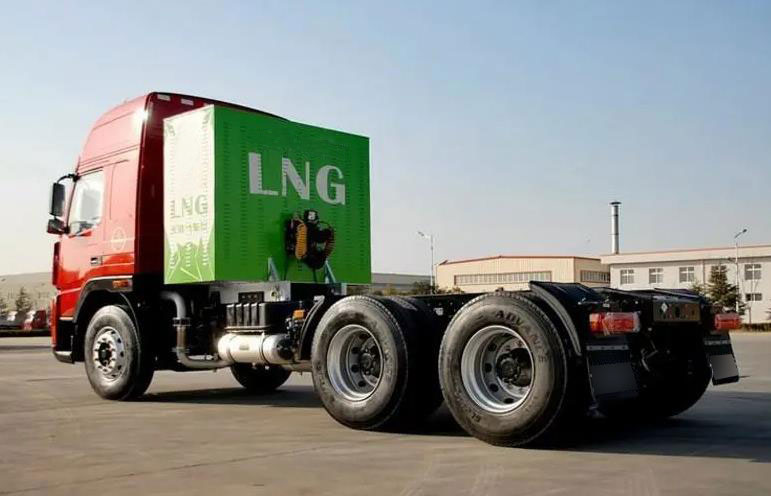
Kapansin-pansin na ang mga gastos sa pagpapatakbo ng mga heavy-duty na trak ng natural na gas ay hindi naayos at malapit na nauugnay sa mga presyo ng gas. Halimbawa, sa ikalawang kalahati ng 2017, dahil sa epekto ng heating gas, ang mga presyo ng LNG ay tumaas nang malaki, na nagresulta sa isang makabuluhang pagtaas sa mga gastos sa pagpapatakbo ng trailer axle ng mga natural na gas na heavy-duty na trak. May mga kaso pa nga ng natural gas heavy-duty truck na pinasara sa merkado.
Bilang karagdagan, ang tangke ng imbakan ng gas ng mga trak ng mabigat na tungkulin ng natural na gas ay hindi dapat magkukulang
